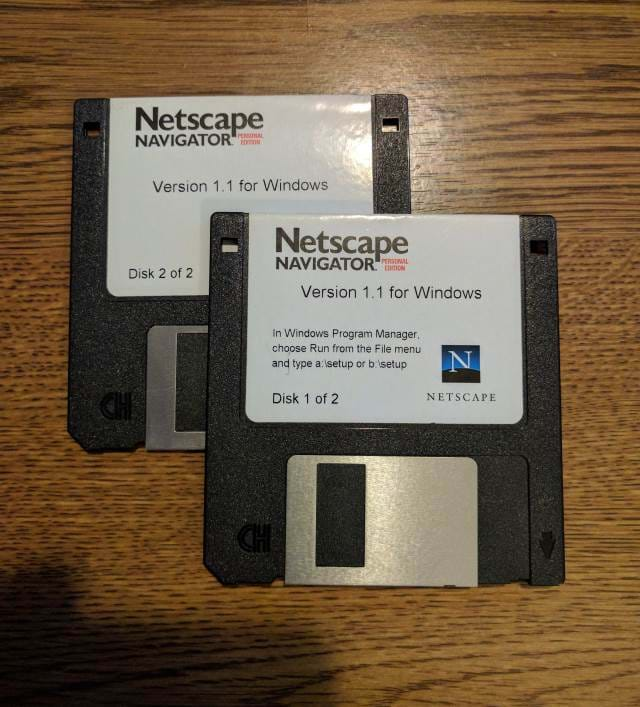4 Browsers You've Never Heard Of
While Chrome has the current market share, there are other browsers for specific users. Today, I present four browsers you may not know about.

I was meeting with a client and giving a demonstration on my laptop.
I opened my browser folder and they looked at my list of browsers.
"Wow! Are all of those browsers installed on your laptop?"
"Yes"
"Do you use all of them?"
"Yes. It's my job to know about all of them, but only when I have to."
As web developers, we always need to be aware of the new browser or technology launch so we can keep our skills up to date.
While browsers aren't as bad as JavaScript frameworks (popping up every single week), there are derivatives of browsers that meet a specific need of Internet "browser" (or user).
Everyone knows about Chrome, Firefox, Safari, Opera, and IE (or Edge as they call it), so we can easily leave them off this list. I'll be focusing on the different browsers in my list to show how times have changed.
To give you an idea of how long I've been using browsers, I found this in my archives.

Of course, I'm not using Netscape now. That would be ridiculous.
Mainly because I don't have a 3.5-inch floppy drive.
So what other types of browsers are there?
Flock [Discontinued]
After looking through my list of browsers, I came across Flock, the "social browser" which integrated Facebook and Twitter into a side panel.
When I decided to download the latest version, it seems Flock is now discontinued.
This browser was originally meant to be a social browser where you didn't have to leave the browser to interact with your Twitter followers or Fans on Facebook.
However, when I went to the site, it was re-branded as a downloadable known as Flock - A faster way for your team to communicate.
It's similar to Slack with a slew of apps to plug into the interface for team collaboration. For those who don't like Slack, I would consider this an alternative.
I find it interesting that Flock, the social browser, became Flock, a collaboration tool for teams.
So it's sort of a social browser now...just for teams.
While I don't have a large team (actually, it's just me), I'll be looking into this a little more from more of a solo entrepreneur/freelance perspective.
I think I can safely say this browser is definitely dead, but I thought it was an interesting concept for a browser to include additional web features in one single package.
Blisk
Speaking of including features into one single package, this was an interesting find.
If you're a web developer building responsive websites, I would recommend Blisk. I am currently using Blisk in designing parts of DanylkoWeb for a new responsive design where I'm focusing on mobile first.
The browser tool comes with the following features:
- A set of fully emulated phones and tablets
- Automatically refreshes the page when the file-watcher notices an update
- Screenshots and screen recordings
- Real-time JavaScript notifications
- Web Page Analytics
- Integrations with other various systems like Jenkins, Google Drive, TeamCity, Trello, Asana, and others.
Blisk is not meant to replace your current browser. It was strictly meant to be a browser tool to assist in making your web development easier.
For example, I wanted to add extensions, but the functionality was disabled.
But I'm liking it so far. I'm finding new features as I'm working with Blisk.
I may do a review on this browser in a future post.
Brave
Brave is a new kind of browser meant to speed up and protect your browsing experience by blocking ads and trackers.
The result is a faster and safer web experience for browsers.
In regards to security, they block harmful advertising, redirect unsafe sites to the HTTPS version of the site, and block tracking pixels and tracking cookies.
It's also open source with support on iOS, Android, Windows, OSX, and Linux.
So far, I've been working with the browser and find it very responsive (not design-wise, but speedy) because, as mentioned, it doesn't download 100% of the webpage. It only returns the content you want.
Unless you really want ads. :-)
Vivaldi
If a designer wanted to create a browser, Vivaldi would be the result.
Vivaldi gives the user a million ways to customize just about everything in the browser. You can customize your tabs so they're on the left or right side, top or bottom.
Want the address bar somewhere else? Move it to the bottom. You have the ability customize the browser exactly the way you want.
They also include theming and quick commands.
The one feature I like is the ability to write notes in a panel. I use it for JavaScript and CSS (most used snippets).
You know...just in case Google went down. ;-)
Waterfox
Waterfox is a project from a 16-year-old named Alex Kontos and simply is the 64-bit version of Mozilla's Firefox.
So you may be asking what is different from the regular Firefox?
At one point, Waterfox was meant for speed, but now it's more of a user-oriented browser giving more choice to power users of the web and lesser restrictions.
Waterfox allows you to install unsigned extensions and provides no plugin whitelist.
Conclusion
It amazes me as to how many browsers are available for every type of Internet user: a browser for web developers, a browser for the paranoid, and a browser for users want complete customization.
It's amazing over the course of 20 years, we went from "what's a browser?" to everyone using one on every device known to man.
I'm always on the lookout for other browsers/browser-like tools.
Did I miss a browser you specifically use? How many browsers do you know of? Do you use them all? Post a comment below and let's discuss.





